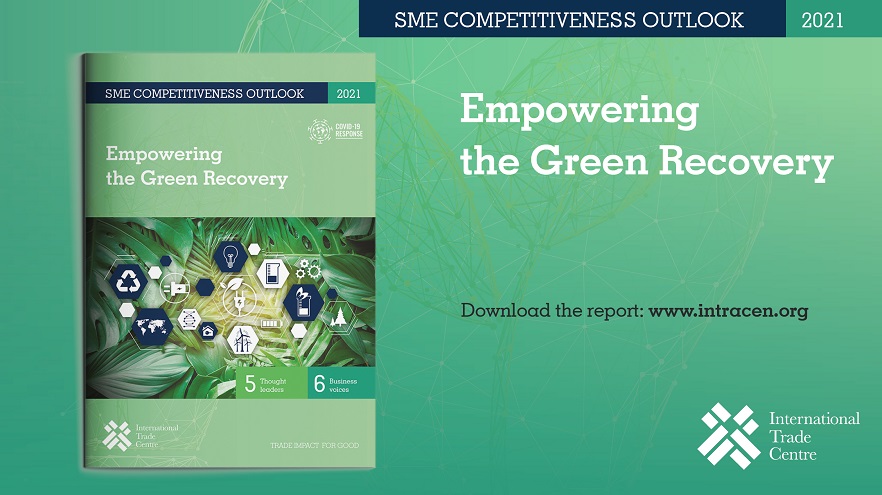|
Getting your Trinity Audio player ready…
|
The latest SME Competitiveness Outlook 2021, released today, focuses on empowering small businesses to rebuild from the pandemic in a way that prepares them to face the looming climate crisis.
‘Going green is both a survival imperative and a business opportunity,’ said International Trade Centre (ITC) Executive Director Pamela Coke-Hamilton. ‘Small businesses must rebuild in a way that prepares them for future shocks and strengthens their competitive position.’
Small businesses make up more than 50% of all jobs and emissions worldwide, so their level of resilience and sustainability matters.
Resilient companies were five times less likely to lay off employees during the pandemic, and more likely to have stable sales, according to new data in the report. A resilient company can withstand disruption because of its strong business processes, internal and external connections, and ability to respond to changes.
Best-performing companies had key business fundamentals in place, such as good inventory management; full recordkeeping; a business bank account; a diverse network of suppliers; and employees with the right set of skills.
In general, micro, small and medium-sized businesses (MSMEs) are less resilient to shocks – whether the pandemic or climate change – because they do not have the key fundamentals in place. But it doesn’t have to remain this way.
Small firms can ‘go green’ to tap new business opportunities. Actions such as reducing waste, gaining green certifications and going digital can lead to new business and financing opportunities.
Other major findings include:
- Small firms in developing countries are among the most concerned about climate change: 68% of surveyed companies in sub-Saharan Africa say that environmental risks are significant to their business, according to research by the International Trade Centre (ITC). About half of surveyed companies in developed countries say the same.
- Just 38% of small firms say they invested in adapting to environmental risks, compared to 60% of large firms. Women-owned and youth-led companies in particular lagged behind.
- Nearly 60% of African companies that invested in greening their enterprise said it led to new, higher-quality and more products; access to new markets; or lower input costs. They were also better positioned to tap the growing pot of green financing.
While small firms can help drive the green recovery, they can’t do it alone. Business support organizations, governments, lead firms and international organizations have to incentivize the green transition. To guide this process, this report provides a 20-point Green Recovery Plan for key players to help small businesses become more competitive, resilient and green.
The report also outlines ITC’s collective offer to equip small businesses to seize opportunities in the green transition through its GreenToCompete strategy and toolbox.
Full report https://www.intracen.org/publications/smeco2021/ITCSMECO2021/
Executive summary https://www.intracen.org/publications/smeco2021/SMECO-2021-Executive-Summary/
More information is available on the ITC website.
About the International Trade Centre – The International Trade Centre is the joint agency of the World Trade Organization and the United Nations. ITC assists small and medium-sized enterprises in developing and transition economies to become more competitive in global markets, thereby contributing to sustainable economic development within the frameworks of the Aid-for-Trade agenda and the United Nations’ Sustainable Development Goals.
For more information, visit www.intracen.org.
